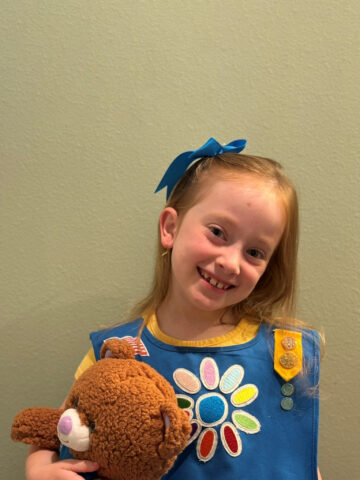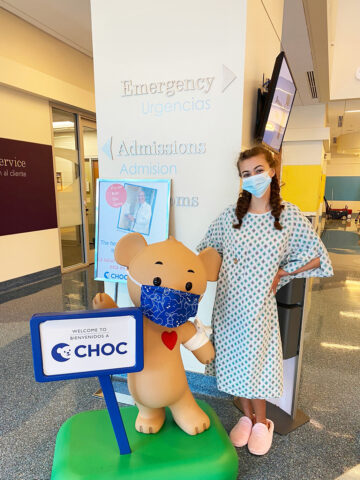By Dr. Eric Ontiveros, chair of pediatric anesthesiology at CHOC
Finding out that your child needs surgery can be scary for parents to hear. You want to know that your child is in the best hands possible, and the nationally ranked surgeons and pediatric anesthesiologists at CHOC specialize in the care of kids. Your child’s pediatric anesthesiologist is not only an important member of your child’s surgery team but also the entire perioperative experience (before, during, and after surgery).
7 things you may not know about pediatric anesthesia:
- Before surgery, the preoperative area is the location where you will meet your child’s full surgical team. During this time, questions about your child’s medical and surgical history will be asked and the perioperative plan is adjusted to fit your child’s medical needs.
- It is normal for children to feel anxious before surgery. Premedication for anxiety may be administered, either orally or intravenously prior to surgery. This may require the help of a parent. The goal of premedication is to reduce the anxiety and facilitate a smoother transition to general anesthesia. Evidence shows that easing a child’s anxiety prior to heading into surgery may limit the emotional disturbances felt during recovery after surgery. Child life specialists are also available, and may use distraction, video or music therapy to calm an anxious patient.
- Anesthesiologists will use a multimodal approach to pain management when appropriate. In addition to pain management during surgery and in the recovery room, a particular child and surgery may qualify for a regional anesthesia procedure or “pain block” that will help control postoperative pain during the days following surgery.
- For younger children who meet specified criteria, an inhalational technique may be used to initiate general anesthesia. This technique administers anesthesia through a mask (with a flavor of your child’s choosing) and avoids the placement of an IV until after your child is asleep. For older children, an IV may be placed in the preoperative area after receiving anti-anxiety medicine in oral form. This allows general anesthesia to be administered in IV form.
- You know you’re not supposed to eat or drink anything before surgery. But do you know why? When general anesthesia is administered, your muscles relax, including the muscles in your stomach and esophagus. The body’s reflex to swallow is also briefly suspended during anesthesia. This combination makes the lungs vulnerable to aspiration of food, which can be very dangerous. Abstaining from food for 8 hours prior to surgery is very important for the safety of anesthesia for your children.
- Common side effects of general anesthesia include nausea, vomiting, itchiness and something called emergence delirium. Emergence delirium lasts 5-15 minutes and happens during the process of waking up. It usually goes away on its own but can be very concerning for parents because your child may not recognize or respond to you. If your child experiences any of these symptoms after a procedure, their care team will be available to provide appropriate medication to treat those side effects.
- Difficulty sleeping may occur for a few nights after a surgical procedure. Night terrors are a common occurrence in children ages 3-6 who have had ear, nose and throat procedures. This difficulty sleeping is often troubling for parents but will typically resolve after a few days and requires no additional treatment. Maintaining a consistent bedtime routine as well as eliminating sources that may interfere with sleep (caffeine, sugar, high energy activities and electronics before bedtime) may help in dealing with these disturbances.
The more information you have, the calmer you and your child will be prior to surgery. Parents are encouraged to ask as many questions as possible when you meet their child’s anesthesiologist, before or after surgery.
In the video below, a pediatric general and thoracic surgeon answers parents’ most common questions about surgery and anesthesia:





